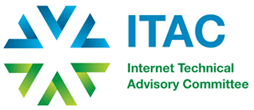The ICCP’s horizontal project on Internet intermediaries – Forging Partnerships for Advancing Policy Objectives for the Internet Economy – follows up on the Ministerial mandate given to the OECD in the Seoul Declaration in 2008 to examine ”the role of various actors, including intermediaries, in meeting policy goals for the Internet economy in areas such as combating threats to the security and stability of the internet, enabling cross-border exchange, and broadening access to information”. The project includes two reports and one draft OECD Council recommendation:
- The first part of this horizontal project, The Economic and Social Role of Internet intermediaries [DSTI/ICCP(2009)9/FINAL], was released publicly in April 2010 and had for objective to develop a common definition and understanding of what Internet intermediaries are, of their economic function and economic models, of contemporary market developments, as well as discussing the economic and social uses that these actors satisfy.
- The second part of the project, The Role of Internet Intermediaries in Advancing Public Policy Objectives [DSTI/ICCP(2010)11/FINAL], was declassified and released in June 2011, and focuses on public policy issues associated with Internet intermediaries, in particular, the roles and responsibilities of Internet intermediaries for actions by users of their platforms, as well as the costs and benefits of their involvement.
- Early 2011, the OECD started work on a draft OECD Council Recommendation on the Role of Internet intermediaries in Advancing Public Policy objectives [DSTI/ICCP(2011)1]. This draft Recommendation aims at representing a consensus on basic principles to evaluate whether and how to involve Internet intermediaries in advancing public policy objectives at national and international levels. The Secretariat hopes to have the draft Recommendation approved by the end of 2011.
ITAC has actively commented and shared its perspective during the development of these documents. Throughout this project on Internet intermediaries, ITAC has raised several principles it deemed fundamental:
- Internet intermediaries platforms are part of a global ecosystem, and the multi-stakeholder participation and consultation is a fundamental element.
- Governments should take into account the costs and risks to the Internet and Internet technologies of asking intermediaries to intervene with technical measures. Using technical measure to advance public policy objectives can have an impact on the stability and functionality of the global network.
- Due process: Intermediaries should not replace judicial authorities in defining if a person’s behavior is illegal or not.
- Call for greater cooperation among international and regional organizations, and a better harmonization of common concepts.
- Focus on the fact that the Internet architecture is based on the end-to-end principle, which is the core feature that allows reliability, robustness, empowerment and innovation on the Internet. New impositions on intermediaries could easily lead to serious degradation of quality of service and impede network functionality.
